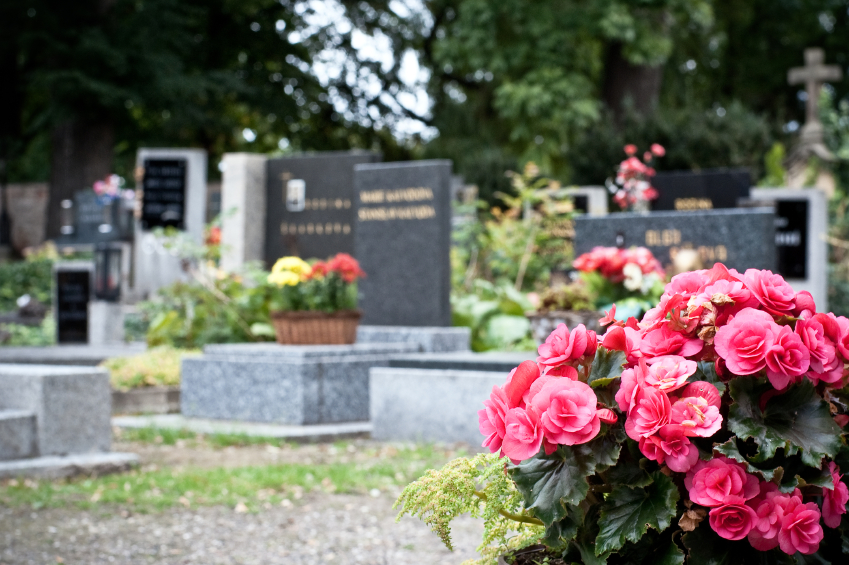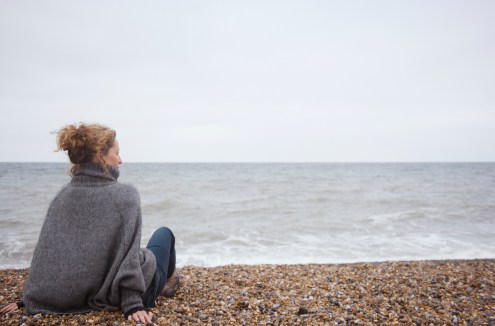How do I support my bereaved boyfriend without neglecting my family and friends too?
The death of a parent can have a huge impact on any couple, not only in dealing with the devastating sense of loss, but also when one person’s support for their grieving partner has a damaging effect on their own life. Our agony aunt Mary Fenwick offers words of wisdom

About six months ago, my boyfriend’s father died suddenly. It was a huge shock and he took six weeks off work. I supported him and spent time with his family. Eventually he talked about leaving work altogether and moving home. I talked him out of making any rash decisions and suggested he go to bereavement counselling, which he is now considering. The only person he wanted to be with, or talk to, was me, so I was always there for him, and I still am, but I'm now missing spending time with my own family and friends. I confided in a friend who said I was being selfish, which upset me. On top of this, his family are pressurising us to settle down and have a baby, which I’m not ready for. How do I take a step back without hurting my boyfriend? Name supplied.
The shockwaves of your boyfriend’s father’s death have reverberated in your life as well, and you have done a wonderful job of being the steady touchstone for your boyfriend as he finds his feet in the chaos. In an ideal world, there would be a time when he says, “Thank you. Now how do we, as a couple, make sure that you are also being looked after?” I can’t see that happening at the moment, and I don’t think you can either. You looked for permission from a friend. Unfortunately that friend fished out one of those words from the trinity guaranteed to swipe the feet from under most women – the words with that evil magic are usually “old” or “fat”, and in your case “selfish”.
You are feeling cut off from those friends and family who would not call you selfish. And now you are turning to me, as an external arbiter, to give you permission to look after yourself. Does this sound detached? And if it does, does detachment sound negative? I am suggesting that a degree of detachment is the most loving and kind way you can act right now. Maybe your mother is one of the people you feel cut off from at the moment, but I talked to my own mother about you. She lives in New Zealand, so my morning is her night-time, her summer is my winter. She says you sound like ‘a clear-minded young lady‘ for recognising that you have choices and not just going along with what other people want; your boyfriend wants you to be ‘always there for him’, your friend says you will be judged for stepping back, and other people want you to have a baby. She also says, ‘Congratulate her on becoming aware that there is a dependency issue. She doesn’t want to be the support pole, with a clinging vine. That’s a very lonely existence.’
I’m offering you this as an example of the different kind of perspective you might get when you step back slightly – older women to whom I’ve described your situation recognise it clearly. I’m also saying it because you have taken on a mothering role for your boyfriend and you have both come to believe that he is dependent on you in a childlike – and in that sense selfish – manner. Again, I don’t mean that negatively. Transactional analysis theory would say that we can all access three parts to our personality: a child-like part, an adult part, and a part that imitates our parents. The implication of seeing your story through this lens is that your boyfriend might react as a child, with a tantrum, if you change. If your question is, ‘How can I do this without hurting him?’, the answer might be that he’ll react as if he’s been hurt, but that is not the only truth here.
Some of these common patterns are in a book called Games People Play by Eric Berne. Now a few things about grief, resilience and resources. There are more theories on grief than you can shake a stick at, but one of the new directions comes from research by George Bonanno. He says most of us are much more resilient in grief than we expect, dipping in and out of positive and negative thoughts: ‘We temporarily lighten up and reconnect with those around us. Then we dive back down to continue the process of mourning.’ You can’t do the mourning for your boyfriend, but you can sometimes help with the reconnection.
My own preferred metaphor is probably a fried egg. Imagine drawing a circle that represents your life. To begin with, a major death takes up all the space. Some people think that over time it shrinks and takes up less space within the circle. But the fried egg theory says it stays exactly the same. You can, however, come to see the circle as representing the yolk of an egg, around which you gradually draw the shape of a new life. If you draw like me, the bits outside the circle might look like an irregularly shaped egg white. The fried egg theory applies to both you and your boyfriend. Your actions in creating some life outside his grief will show him that it is possible. Could you ask him to come for a walk with you? Research shows that outdoor exercise, especially in green space, has a measurable benefit in wellbeing. It would also move you both physically into different territory for a conversation, plus the side-by-side approach can work particularly well with men. Whether he takes the step with you or not, please don’t let this death be part of the reason that you lose relationships with your own living and loving friends and family.
For more inspiration
- Read The Other Side of Sadness: What the New Science of Bereavement Tells Us About Life After Loss by George A. Bonanno (Basic Books, £10.99). “Most bereaved people get better on their own, without any kind of professional help.”
- Read Games People Play by Eric Berne (Penguin, £8.99).
- Visit http://www.blatner.com/adam/psyntbk/grief.htm – I love Adam Blatner, who is a retired psychiatrist. This article says healing from grief is like healing from a physical wound.
- Visit http://www.fph.org.uk/uploads/r_great_outdoors.pdf – Faculty of Public Health Report 2010: “Safe, green spaces may be as effective as prescription drugs in treating some forms of mental illness.”
“The pain of grief is just as much part of life as the joy of love; it is perhaps the price we pay for love, the cost of commitment. To ignore this fact, or to pretend that it is not so, is to put on emotional blinkers which leave us unprepared for the losses that will inevitably occur in our own lives, and unprepared to help others cope with losses in their own.” Bereavement: Studies of Grief in Adult Life by Colin Murray Parkes (Penguin, £10.99).
Photograph: iStock








